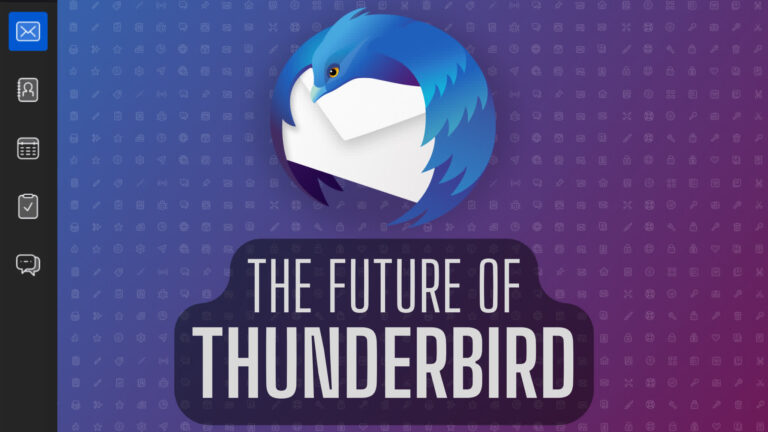
[ad_1]
In context: Once upon a time, Mozilla was seemingly abandoning the Thunderbird project to focus exclusively on Firefox. Things changed in 2020, when the MZLA subsidiary was established to manage the mail client, and now the developers have announced a clear plan about how they will improve the program within the next three years.
Mozilla Thunderbird is approaching its 20th anniversary, and the developers are already thinking about how one of the most popular mail clients out there can be sustainable for the next 20 years. Thunderbird’s codebase is old, so much so that it’s becoming “unsustainable,” but things will change starting with the release of the “Supernova” upgrade (Thunderbird 115) planned for July 2023.
The MZLA/Mozilla developers have announced they are rebuilding the Thunderbird interface “from scratch,” with a modernized overhaul of the software both visually and technically. A massive rework to get rid of all the technical and interface debts collected over the past 10 years, which is “not an easy task” but a needed one if the Thunderbird team wants to sustain the project for the years to come.
Thanks to a steady flow of user donations coming to the MZLA initiative, the Thunderbird developers can now lay out a multi-year plan about what they are actually going to do with the software’s open-source code. Right now, there are three medium-term “primary objectives” the MZLA team is going to implement within the next 3 years.

The first objective is about making the codebase “leaner and more reliable,” rewriting ancient code and removing the aforementioned technical debts; the second objective is to rebuild the interface from scratch, creating a consistent design system while retaining an “adaptable and extremely customizable user interface.” Finally, the third objective is a switch to a monthly release schedule just like Firefox.
As a matter of fact, Thunderbird still is “literally a bunch of code” running on top of the Firefox codebase, the developers said. This approach made it possible for Thunderbird to leverage all the “good stuff” of the open-source browser, like multi-platform support, the Gecko layout engine, and the Spidermonkey JavaScript engine/compiler. But it also made Thunderbird development a complex affair, as Firefox is managed by hundreds of developers changing things on a daily basis while the mail client can count on “a bit more than a dozen” core developers.
However, the community-based approach of MZLA and the steady donations have greatly helped Thunderbird traverse the difficult times the project had to endure in the last few years. The Thunderbird community will be the focus of the project in the future as well, as the developers will bring the many improvements they have in store for the program’s UI and user interface (UX) in the next 2 years while creating an interface that “can adapt to everyone’s needs.”
In the upcoming future, Mozilla Thunderbird will focus on adding new features that some competing mail clients have had for years, as well as on the creation of innovative solutions to improve everyone’s experience. The team of core developers is growing as well, while there are plans to increase revenue streams beyond users’ donations.
[ad_2]